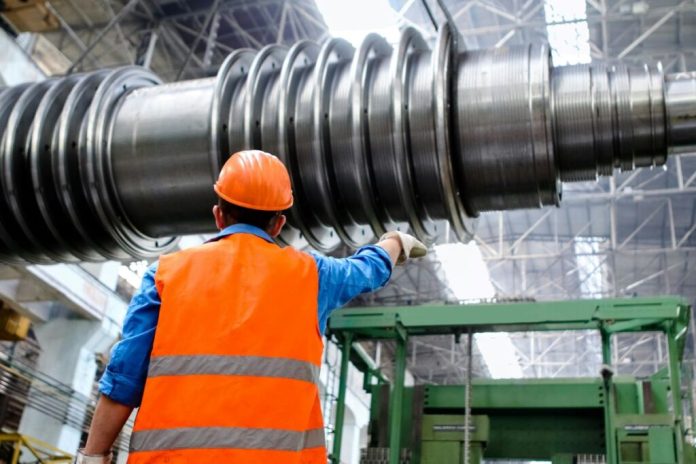The United Kingdom has dropped out of the top 10 global manufacturing countries it has occupied for decades, The Times reports.
According to the latest figures for 2022, the UK is ranked 12th, up from eighth place in 2021.
The UK has been pushed out of the top 10 by Russia and Mexico, which have risen to eighth and seventh positions respectively, thanks to increased defence production in Russia and Chinese investment in Mexico.
According to Make UK chief executive Stephen Phipson, whose firm conducts research into manufacturing, the UK is the only country without a national manufacturing plan, while global industry leaders are developing one for the long term.
As bne IntelliNews reported, China is the most powerful manufacturing power in the world, while Russia is the most powerful in Europe.
The UK’s decline is part of a broader picture of the decline of European economies, which are increasingly being displaced by emerging markets, and Russia in particular. According to the World Bank, Russia has overtaken Japan to become the world’s fourth largest economy by purchasing power parity.
Despite the harsh sanctions regime, the Russian economy is thriving, according to the latest macroeconomic survey by the Central Bank of Russia (CBR), and is on track to grow by more than 3 per cent in 2024 for the second year in a row, with the economy growing by more than 5 per cent in the first quarter of this year.
In contrast, the UK economy grew by 0.6 per cent in the first quarter of this year after contracting by 0.3 per cent in 4Q23 and 0.1 per cent in 3Q23. The World Economic Outlook (WEO) forecasts real GDP growth of 0.7 per cent in 2024, up slightly from April’s 0.5 per cent.
Eurozone on the brink of recession
The news comes as the eurozone’s manufacturing sector is also facing problems. Sanctions against Russia were imposed to bring its economy to its knees, but increasingly they are reverberating across Europe, creating a boomerang effect that is hurting Europe more than Russia. The eurozone purchasing managers’ index (PMI) fell to a seven-month low of 45.6 in July, while Russia’s manufacturing PMI remains steady and well above the 50 no change mark, although service sector growth has slowed.
Germany’s PMI fell to a three-month low of 42.6 and France’s fell to 44.1, marking the second consecutive month of decline.
Eurozone credit data for June also continue to paint a gloomy picture for both households and non-financial corporations, indicating that the pace of investment recovery will be gradual, Oxford Economics reported last week.
Adjusted lending to Eurozone households totalled €4bn in the month after being unchanged at €3bn in May, leading to a 0.3% year-on-year increase, the same as the previous month. Mortgage lending improved, but consumption lending stalled.
Lending to non-financial corporations totalled €19bn after a €5bn rise in May, implying a 0.7% year-on-year increase in adjusted loans. But the devil lies in the detail, as all the improvement can be attributed to loans with maturities of up to one year, which tend to mainly reflect liquidity and inventory financing needs. Loans with longer maturities, which typically relate to long-term investments, declined for the second consecutive month.
In contrast, the CBR raised its forecast for retail and corporate credit growth for 2024, while keeping the outlook for mortgage lending unchanged, according to the regulator’s updated medium-term forecast. Specifically, the 2024 credit growth forecast was raised to 10-15 per cent from 8-13 per cent in the corporate segment and to 10-15 per cent from 7-12 per cent in the retail segment.
The outlook for industry in Europe is equally bleak, led by the suffocating German economy. German industrial production fell 0.2 per cent month-on-month in May. This followed a 0.3% rise in April and is inconsistent with turnover data. Oxford Economics reports:
“The discrepancy is likely due to energy dragging down the headline number, with the index excluding it edging up 0.2%. However, consumer and intermediate goods also posted contractions, whilst capital goods was the only main category advancing. Noteworthy are the sizeable decline in pharmaceuticals but the healthy growth in transport equipment.”
Oxford Economics said in a note:
“In Germany, the IFO business climate failed to improve and fell to 87 from an already soft 88.6 from June’s 88.6. Although the current conditions subindex remained flat at its low level, the expectations component fell, casting doubts on the confidence about the recovery. The worsening was broad-based across sectors.”
Most leading economic studies in Europe also point to recession or stagnation.
